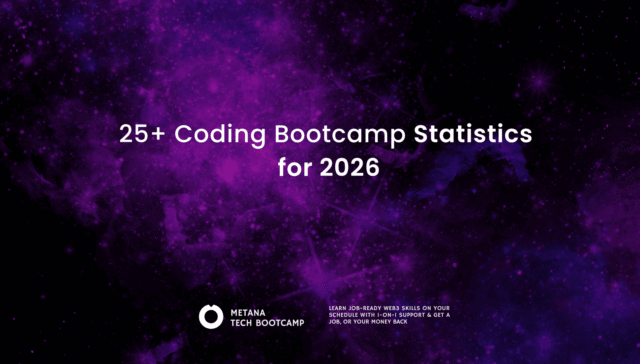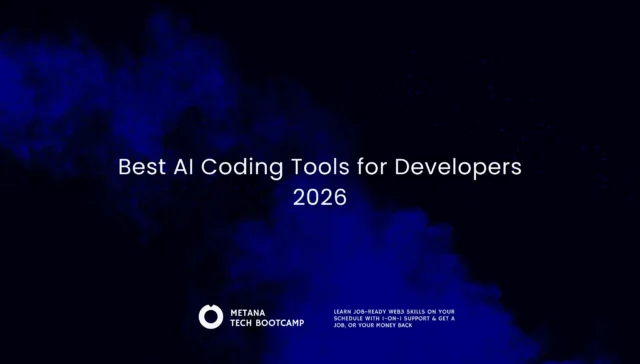The digital age has witnessed an exponential rise in the importance and applications of data analytics across numerous domains. As the demand for these skills skyrockets, the ability to self-learn has never been more valuable.
Are you wondering, “Can I teach myself to be a Data Analyst?” The answer is a resounding yes! With the right attitude, determination, and resources, anyone can teach themselves to become a Data Analyst. Here’s how.
Understanding the Basics of Data Analytics
Data analytics involves the extraction of meaningful insights from raw data. The process encompasses a range of techniques that enable businesses to make more informed, data-driven decisions. There are four primary types of data analytics:
- Descriptive Analytics: Descriptive analytics focuses on summarizing and interpreting historical data to understand what has happened in the past. It involves analyzing data to gain insights into patterns, trends, and relationships. For example, descriptive analytics can be used to analyze sales data and identify which products are the most popular or which regions have the highest sales.
- Diagnostic Analytics: Diagnostic analytics aims to determine why certain events or outcomes occurred. It involves analyzing data to identify the root causes or factors that contributed to a particular situation. Diagnostic analytics often requires the use of more advanced techniques and statistical models to uncover relationships and perform hypothesis testing. For instance, diagnostic analytics can be used to analyze customer data and determine the factors that led to a decrease in customer satisfaction.
- Predictive Analytics: Predictive analytics focuses on using historical data and statistical models to make predictions or forecasts about future events or outcomes. It involves analyzing patterns and trends in data to identify potential future scenarios. Predictive analytics can be used to forecast sales, predict customer behavior, or anticipate equipment failures. By leveraging predictive analytics, organizations can make proactive decisions and take preventive actions to mitigate risks or seize opportunities.
- Prescriptive Analytics: Prescriptive analytics goes beyond predicting future outcomes and aims to provide recommendations or optimal courses of action. It involves using advanced algorithms and optimization techniques to evaluate multiple scenarios and determine the best course of action based on predefined objectives or constraints. Prescriptive analytics can be used to optimize supply chain operations, allocate resources efficiently, or optimize marketing campaigns.
Each type serves a different purpose and requires different techniques and methodologies. Descriptive analytics looks at past data, diagnostic analytics determines the cause of a certain outcome, predictive analytics forecasts future possibilities, and prescriptive analytics suggests the best course of action.
Why Self Learning Data Analytics?

Advantages of Self-Learning Data Analytics over Traditional Methods
- Flexibility: Self-learning allows individuals to learn at their own pace and on their own schedule. Unlike traditional formal education, where students have to adhere to a fixed timetable and curriculum, self-learning enables individuals to tailor their learning journey to their specific needs and preferences. They can choose the topics they want to focus on, spend more time on challenging areas, and skip over concepts they already understand.
- Cost-Effectiveness: Self-learning data analytics can be a more cost-effective option compared to formal education. Many online resources, tutorials, and courses are available for free or at a much lower cost than traditional degree programs. Additionally, self-learners can avoid expenses such as tuition fees, commuting costs, and accommodation fees associated with attending a physical institution.
- Real-World Application: Self-learning data analytics often focuses on practical skills and real-world applications. By working on hands-on projects and using real datasets, self-learners can gain practical experience and develop the skills needed for real-world data analytics tasks. This practical approach can make self-learners more marketable to employers, as they can demonstrate their ability to apply their knowledge to solve real-world problems.
- Continuous Learning and Adaptability: The field of data analytics is continuously evolving, with new tools, techniques, and technologies emerging regularly. Self-learners have the advantage of being able to adapt and learn new skills quickly to keep up with industry trends. They can stay updated on the latest advancements in data analytics and continuously improve their skills through self-directed learning.
- Portfolio Building: Self-learners have the opportunity to build a strong portfolio of projects and practical examples to showcase their skills and knowledge. This portfolio can be valuable when applying for jobs or freelance opportunities, as it provides concrete evidence of their abilities and demonstrates their commitment to self-learning and professional development.
Success Stories of Individuals who Achieved Mastery through Self-Learning
- Kaggle Competitions: Kaggle is a platform where data scientists and enthusiasts can participate in data science competitions. Many successful data scientists and analytics professionals have honed their skills by participating in Kaggle competitions and achieving top rankings. These individuals have demonstrated that self-learning, coupled with practical experience in competitions, can lead to mastery in data analytics.
- Data Science Bootcamps: Data science bootcamps, which are intensive, short-term training programs, often follow a self-learning approach. Participants immerse themselves in a focused curriculum and work on real-world projects to develop their skills. Many individuals have successfully transitioned into data analytics careers after completing bootcamps, showcasing the effectiveness of self-learning in acquiring the necessary skills.
- Online Learning Platforms: Online learning platforms such as Coursera, edX, and Udemy offer a wide range of data analytics courses and programs. Many individuals have successfully completed these courses and acquired the skills needed for data analytics roles. These success stories highlight the effectiveness of self-learning through online platforms.
It’s important to note that self-learning requires discipline, self-motivation, and a proactive approach to learning. However, with the abundance of online resources and learning materials available today, individuals have more opportunities than ever to learn data analytics on their own and achieve mastery in the field.
Essential Skills for Data Analytics
- Mathematics: Data analytics involves applying mathematical concepts like algebra and calculus. Understanding probability and statistics is particularly crucial.
- Statistics: This is the core of data analytics. It allows us to draw meaningful insights from data and assess the reliability of our results.
- Programming: Languages like Python and R are key tools in data analytics. They allow analysts to manipulate data, conduct analyses, and visualize results.
- Data Wrangling: This refers to the process of cleaning and organizing raw data into a format ready for analysis, ensuring that it’s reliable, accurate, and easy to work with.
- Data Visualization: This involves using graphs, charts, and other visual tools to make complex data easily understandable and visually engaging. This skill is key for effectively communicating your findings.
Building A Learning Plan

Creating a personalized learning plan can help individuals achieve their goals and interests effectively. Here are some steps to guide you through the learning process and resources to connect with like-minded individuals:
- Identify Goals and Interests: Start by clearly defining your learning goals and interests. Determine what skills, knowledge, or subjects you want to focus on.
- Break Down Learning Objectives: Break down your learning objectives into smaller, manageable steps. This will help you stay organized and track your progress along the way.
- Time Management: Allocate specific time slots for learning activities in your schedule. Prioritize your learning goals and create a routine that suits your availability and preferences.
- Choose Learning Platforms: Select learning platforms that align with your goals and interests. Some popular online learning platforms include Coursera, edX, Udemy, Khan Academy, and LinkedIn Learning. These platforms offer a wide range of courses, tutorials, and resources on various subjects.
- Join Online Communities and Forums: Engaging with online communities and forums can provide opportunities to connect with like-minded individuals, share ideas, and seek guidance. Platforms like Reddit, Quora, and Stack Exchange have dedicated communities for various topics where you can ask questions, participate in discussions, and learn from others.
- Participate in Webinars and Workshops: Attend webinars and virtual workshops related to your area of interest. Many organizations and institutions offer free or paid webinars that provide valuable insights and opportunities for networking.
- Find Mentors: Look for mentors or experts in your field of interest who can guide you and provide valuable advice. LinkedIn and professional networking platforms can help you connect with professionals in your desired field.
- Read Books and Blogs: Supplement your learning with books, blogs, and articles related to your area of interest. Many experts in various fields share their knowledge and experiences through books and online publications.
- Practice and Apply Knowledge: Apply what you learn through projects, exercises, and real-world applications. Practical experience is essential for reinforcing learning and developing practical skills.
- Track Progress and Reflect: Regularly assess your progress and reflect on your learning journey. Set milestones and celebrate achievements to stay motivated and focused on your goals.
Remember, learning is a continuous process, and it’s important to stay curious, motivated, and open to new opportunities for growth and development.
Resources for Self-Learning Data Analytics:
- Online Courses:
- Coursera: Offers a wide range of data analytics courses, such as “Data Science and Machine Learning Bootcamp with R” and “Applied Data Science with Python.”
- edX: Provides courses like “Introduction to Data Science” and “Data Science and Machine Learning with Python.”
- DataCamp: Offers interactive courses on data analysis, data visualization, and machine learning using Python, R, and SQL.
- Udemy: Provides various data analytics courses, including “Python for Data Science and Machine Learning Bootcamp” and “R Programming A-Z: R For Data Science With Real Exercises!”
- Khan Academy: Offers free courses on data analysis, statistics, and probability.
- Books:
- “Python for Data Analysis” by Wes McKinney: A comprehensive guide to data analysis using Python and its libraries, such as Pandas and NumPy.
- “Data Science for Business” by Foster Provost and Tom Fawcett: Explores the concepts and applications of data science in a business context.
- “R for Data Science” by Hadley Wickham and Garrett Grolemund: A practical guide to data manipulation, visualization, and analysis using R.
- “Storytelling with Data” by Cole Nussbaumer Knaflic: Focuses on data visualization and effective communication of data insights.
- Websites and Platforms:
- Kaggle: Provides datasets, competitions, and tutorials for data analysis and machine learning.
- Tableau Public: A free data visualization tool that allows you to create interactive dashboards and share them online.
- Data.gov: Offers a vast collection of datasets from various government agencies, which can be used for practice and analysis.
Popular Data Analytics Tools and Software:
- Python: A versatile programming language with libraries like Pandas, NumPy, and scikit-learn for data manipulation, analysis, and machine learning.
- R: A statistical programming language with extensive libraries and packages for data analysis and visualization.
- Tableau: A powerful data visualization tool that allows you to create interactive dashboards and reports.
- Excel: A widely used spreadsheet software that includes data analysis features, such as pivot tables, charts, and formulas.
Importance of Hands-on Practice and Recommended Datasets/Projects:
Now, “Can I teach myself to be a Data Analyst?” without hands-on practice? Definitely not! Theory should always go hand-in-hand with practice. Applying your skills to real-world problems will consolidate your learning. Kaggle is a platform where you can participate in competitions and work on your own data projects.
- Kaggle datasets: Explore and analyze datasets available on Kaggle, ranging from various domains like finance, healthcare, and sports.
- UCI Machine Learning Repository: Offers a wide range of datasets for practicing data analysis and machine learning.
- Data.gov: Access datasets from government agencies to analyze social, economic, and environmental data.
- Create your own projects: Identify a problem or question of interest to you, collect relevant data, and perform analysis and visualization to derive insights.
Remember, hands-on practice and working on real-world projects will enhance your understanding and application of data analytics concepts.
Here are Some Challenges and Tips for Success
Lack of Structure: Self-learning requires self-discipline and organization. Without a structured curriculum, it can be challenging to stay focused. To overcome this challenge:
- Create a study schedule and stick to it.
- Break down your learning goals into smaller tasks and set deadlines.
- Use online platforms or learning management systems to track your progress.
Lack of Accountability: Without a teacher or classmates, it can be difficult to stay accountable for your learning. To address this challenge:
- Set up regular check-ins with a study buddy or join study groups to hold each other accountable.
- Share your learning progress on social media or online communities to gain external accountability.
- Consider finding a mentor or coach who can provide guidance and keep you motivated.
Information Overload: The vast amount of information available can be overwhelming. To manage information overload:
- Prioritize your learning goals and focus on specific topics or skills.
- Break down complex concepts into smaller, manageable parts.
- Use reliable sources and follow structured learning materials.
Lack of Feedback: Getting feedback on your progress is crucial for growth. To overcome this challenge:
- Seek feedback from online communities, forums, or mentors.
- Complete practice exercises and quizzes to assess your understanding.
- Join online courses or bootcamps that provide personalized feedback.
Importance of Perseverance, Consistency, and Continuous Learning:
- Perseverance: Self-learning can be challenging, but perseverance is key to overcoming obstacles and achieving success. It is important to stay motivated, even when faced with difficulties or setbacks.
- Consistency: Consistency in learning helps build momentum and ensures steady progress. Make learning a daily habit by allocating dedicated time for study and practice.
- Continuous Learning: Embrace a growth mindset and understand that learning is a lifelong journey. Stay curious, explore new topics, and keep up with the latest trends and developments in your field.
Tips to Stay Motivated:
- Set Goals: Define clear, achievable goals to track your progress and provide a sense of direction.
- Join Study Groups: Collaborate with like-minded learners by joining study groups or online communities to share knowledge, discuss challenges, and stay motivated.
- Seek Mentorship: Find mentors or experts in your field who can provide guidance, support, and motivation.
- Celebrate Milestones: Acknowledge and celebrate your achievements along the way to stay motivated and boost confidence.
- Take Breaks and Reward Yourself: Take regular breaks during study sessions to recharge. Reward yourself with small treats or activities after accomplishing study milestones.
- Visualize Success: Visualize the end result of your learning journey and the benefits it will bring to your personal and professional life.
- Stay Curious: Explore related topics, attend webinars or conferences, and engage in continuous learning beyond your core curriculum.
Remember, self-learning requires dedication, perseverance, and continuous effort. Stay motivated, seek support when needed, and embrace the lifelong learning process.
Conclusion : Can I Teach Myself To Be A Data Analyst?
In summary, self learning data analytics can propel you to excel in this high-demand field. It gives the flexibility to learn at your own pace, focus on areas of interest, and build a solid foundation in data analytics. This learning style lets you take control of your education and growth.
Therefore, if you’re asking, “Can I teach myself to be a Data Analyst?”, know that it’s entirely possible. With a sea of knowledge available online and a persistent desire to learn and practice, you can certainly pave your own path into a promising career in Data Analysis.

1. What are the best resources for self learning data analytics?
Several online platforms offer comprehensive courses in data analytics, including Coursera, edX, DataCamp, and Khan Academy.
2. Which languages or tools are essential for data analytics?
SQL, Python, R, Excel, and Tableau are some of the essential tools and languages for data analytics.
3. What is the role of data analytics in business?
Data analytics helps businesses in informed decision-making, identifying trends, improving operational efficiency, and driving strategic growth.
4. How long does it take to self-learn data analytics?
The time can vary depending on an individual’s prior knowledge, the amount of time they can dedicate per day, and the complexity of the specific area they’re learning.
5. Can you self-study data analytics?
Yes, with the abundance of online resources, self-study in data analytics has become quite feasible.
6. What are the different types of data analytics?
The four primary types are Descriptive, Diagnostic, Predictive, and Prescriptive Analytics.
7. How does Python help in data analytics?
Python, with libraries like pandas, numpy, and matplotlib, helps in data cleaning, manipulation, analysis, and visualization.
8. How important is hands-on experience in learning data analytics?
Hands-on experience is crucial as it helps in understanding real-world scenarios and applications of data analytics.
9. Are there any communities for data analytics learners?
Yes, communities like Kaggle, GitHub, and data. World are great platforms for data analytics learners to connect and learn.
10. Is continuous learning necessary in data analytics?
Yes, the field of data analytics is constantly evolving, making continuous learning essential to stay updated.







